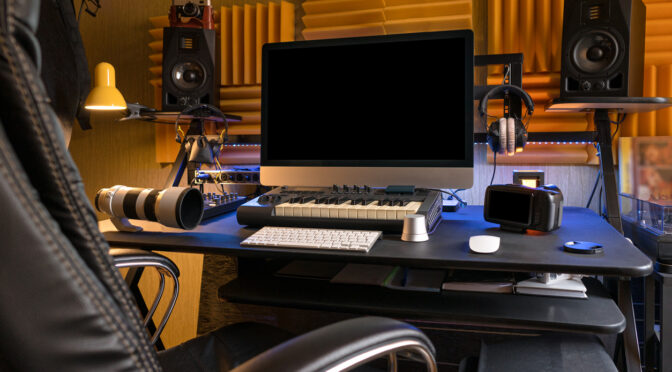
In a world with an ever-growing, work-from-home labor force, we must each become more considerate of how much noise we make so as not to disturb our neighbors. This is especially true if you live in a combined living space, like apartments or condos, but there’s benefits to soundproofing outside of that as well. If you’re an aspiring voice actor, a musician, or just someone who wants to reduce the sounds of the noisy city around them, there’s value in soundproofing your home office.
Central Self Storage has compiled a quick primer on soundproofing, so you can quickly get on your way with a home office compatible to your needs.
Soundproofing Material
When people think of soundproofing material, the first thing that often comes to mind are those foam/fiberglass, acoustic panels that are stuck to the walls of a recording studio. These acoustic panels are excellent at reducing vibrations that carry in the air, and can be cut to whatever size and shape you need for optimal coverage of your home office. While those are obviously a popular and effective option (the foam panels are relatively cheap, too!) they aren’t your only resource.
How to Soundproof a Room
The most obvious way to soundproof a room is to utilize aforementioned acoustic panels. Alternatively, you could also soundproof a home office by using additional layers of drywall, hanging thick blankets in front of your doors, putting up noise-blocking curtains, or by filling the inside of a hollow door with soundproofing materials.
A lot of the nuance comes from the size and shape of a given room, as well as where it’s placed compared to other people. Generally speaking, it’s ideal to place your soundproofing material on walls facing rooms where others will be. There’s usually not much purpose in soundproofing walls that connect at the corner of a building, for example.
But, if your goal is to create a prime recording space, you may want to soundproof as much space as possible. For some, this is made easier (and more aesthetically logical) by designating a closet or small guest bedroom as the dedicated recording booth.
A Place to Store Your Soundproofing
If you are either looking for a place to store extra soundproofing materials, or you’re transitioning to a new studio, you should consider the value of a secure storage unit. Central Self-Storage has a variety of storage units near you available to fit your needs, as well as a coverage of other guides to help improve or optimize your living space.
You can check out more at our blog or website!


